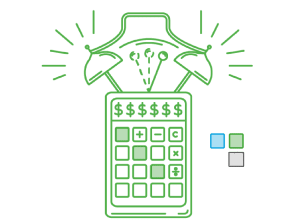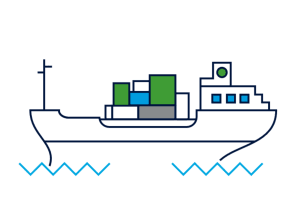This article answers the following questions:
- What changes has the AIS/IMPORT PLUS customs system introduced?
- How should VAT on imported goods be settled under the simplified procedure?
- What impact will the amendment to the Polish VAT Act have on importers?
The launch of the AIS/IMPORT PLUS customs system on 19 June 2025 – driven by the need to implement EU customs regulations in Poland – has introduced a number of changes for taxpayers importing goods. One of these changes is the modification of the scope of data required for simplified declarations, which no longer include information on customs and tax liabilities. This means that businesses bringing goods into Poland must calculate and report VAT only in the supplementary declaration, which – as a rule – must be submitted to the customs authorities within 10 days of the goods being released or within 10 days of the end of the period covered by the supplementary declaration (that is, by the 10th day of the following month).
In certain justified circumstances, the deadline for submitting the supplementary declaration may be extended to 120 days from the date of release of the goods. Only in exceptional cases may the customs authorities allow this deadline to be extended to up to two years from the date of release.
In practice, the introduction of AIS/IMPORT PLUS has proved problematic for taxpayers using the simplified procedure and has complicated the existing VAT settlement process in Poland.
Find out how we can support your business
AIS/IMPORT PLUS customs system and the simplified VAT settlement procedure
Polish regulations allow taxpayers who settle the import of goods under the so-called simplified procedure to account for the VAT due on imports in the return filed for the period in which the tax obligation on imports arose. In practice, this means that the taxpayer reports both output and input VAT in the same VAT return, which makes the transaction potentially neutral for them.
The introduction of the new AIS/IMPORT PLUS system means that taxpayers must provide in their VAT returns the numbers and dates of acceptance of supplementary declarations (before the system was introduced, it was sufficient to provide only the date of the simplified declaration). Importers who delay submitting the supplementary declaration (for example, because they do not know the final price of the imported goods or are waiting for final commercial terms to be agreed) face financial consequences.
Failure to settle the import in the tax return within four months of acceptance of the simplified declaration results in the loss of the right to apply the simplified procedure and the obligation to pay the tax together with late payment interest, calculated from the 10th day after the customs authority notifies the amount of tax liabilities.
One way to avoid arrears is for the entity to provide security for the VAT due when submitting the simplified declaration. In practice, however, this solution also entails costs which, in the case of high-value imports, may represent a significant burden for many businesses, negatively affecting the company’s financial liquidity.
Amendment to the VAT Act – consequences for businesses settling imports
The amendment adopted by the Polish government is driven by the need to align Polish regulations with EU rules and provides for an extension of the deadline for submitting a correction to the tax return in which the import of goods is reported.
Under the new regulations, this deadline may not be later than one month after the deadline for submitting the supplementary declaration.
The change will benefit taxpayers who hold the status of Authorised Economic Operator under the Union Customs Code and who have the customs authority’s consent to submit supplementary declarations within a period longer than 120 days.
Thanks to the new regulations, taxpayers using the simplified procedure will still be able to settle VAT on imports directly in the tax return – even if they submit the supplementary declaration after the four-month period. Under the amending act, the new provisions will apply to imports for which the simplified declaration was submitted after 18 June 2025.
Settling VAT on imports into Poland requires vigilance and deadline management
In summary, the AIS/IMPORT PLUS system has brought significant changes to VAT settlement on imports, especially under the simplified procedure. At RSM, we understand these complexities and are ready to support businesses in managing the process safely and efficiently through coordination, liaison with the relevant authorities and minimisation of tax risks. If you have any questions regarding VAT settlement on imports under the simplified procedure, we encourage you to contact our tax advisers.
Frequently Asked Questions about AIS/IMPORT PLUS
AIS/IMPORT PLUS is a new customs system in Poland, launched on 19 June 2025, aimed at implementing EU customs regulations. It changes the way VAT on imported goods is declared and settled, particularly for simplified declarations.
The main changes associated with the introduction of the new customs system in Poland include a revised scope of data required for the simplified VAT procedure in imports and the need to calculate and report VAT in the supplementary declaration. Importers are now also required to provide the numbers and dates of acceptance of supplementary declarations in VAT returns.








